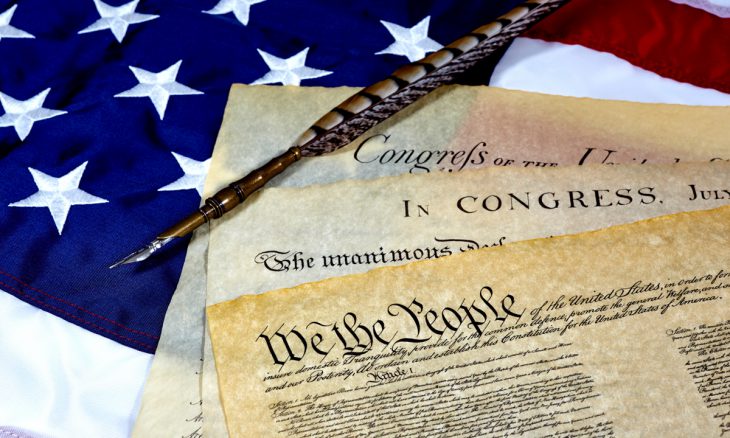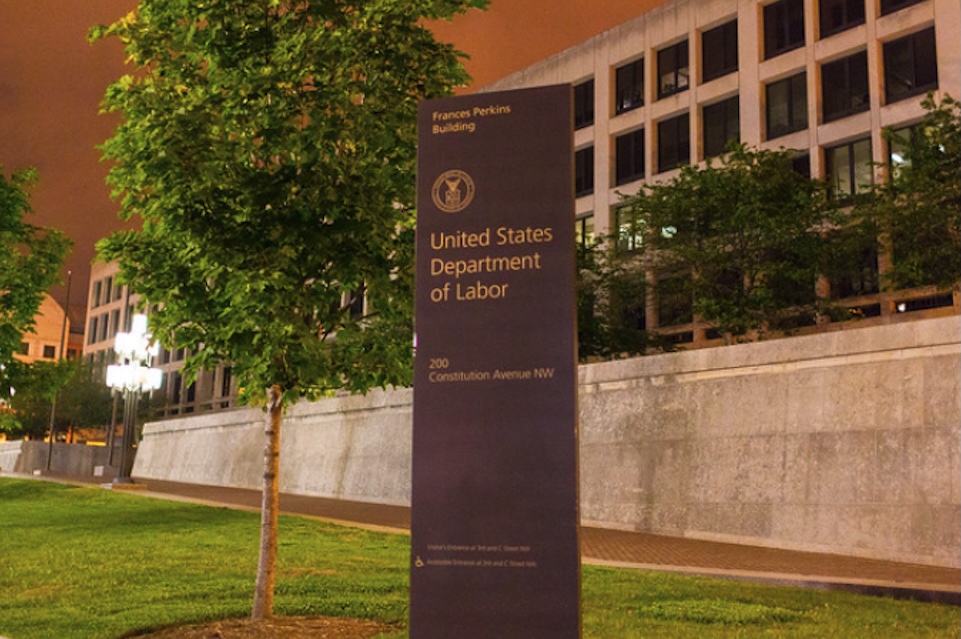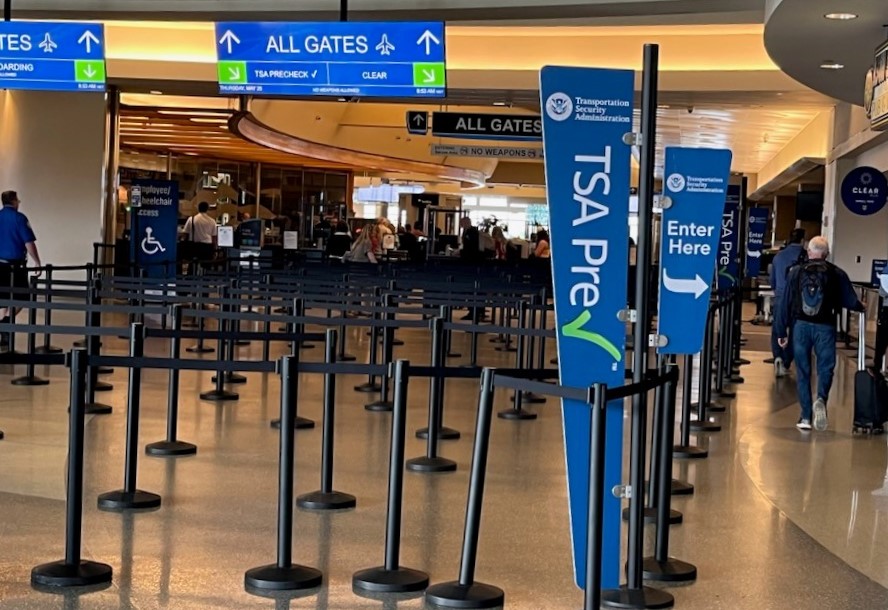The Constitution shapes our society and safeguards our freedoms.
PRAY FIRST for God’s wisdom and guidance for our nation’s leaders to uphold justice and truth. Also, for the people to remain committed to the principles of the rule of law—ensuring that our freedoms are protected, and that authority is exercised with integrity and fairness.
But the wisdom from above is first pure, then peaceable, gentle, open to reason, full of mercy and good fruits, impartial and sincere. James 3:17
What does the rule of law mean? It gets tossed around a lot, but many people are not familiar with it nor where it derives. This very rule is a cornerstone of the U.S. Constitution and a fundamental principle that underpins American democracy. It is the foundation of our governance. It affirms that all citizens, institutions, and government entities are subject to the law and held accountable under it.
The Rule of Law and Constitutional Adherence
The rule of law ensures that every person and institution, including the government, is bound by legal principles that are foundational to protecting a society. This is where constitutional adherence plays a critical role, as it ensures that all laws and government actions align with the principles enshrined in the U.S. Constitution, safeguarding individual rights and thereby maintaining the rule of law. In practice, constitutional adherence means that laws passed by Congress, executive orders by the President, and rulings by the courts must all conform to the Constitution.
In our daily lives, constitutional adherence can be reflected in various ways. For example, the right to free speech—as protected by the First Amendment—allows individuals to express their opinions without fear of government retribution. Similarly, the Fourth Amendment protects citizens from unreasonable searches and seizures, requiring law enforcement to obtain a warrant before conducting a search.
This adherence to constitutional principles is not merely theoretical; it manifests in the authority and weight the rule of law carries in the U.S. The Constitution’s role as the supreme law of the land. It ensures that all government actions are subject to scrutiny by the judiciary, thereby maintaining a balance of power designed to prevent governmental overreach. This mechanism compels every branch and arm of government to carefully consider its responsibilities and the potential repercussions of exceeding its authority. By adhering to constitutional principles, this upholds the rule of law and protects individual rights against arbitrary or unlawful actions by the government.
Rule of Law in Action
The practical implications of this principle can be seen in landmark cases throughout U.S. history, where judicial review has upheld the Constitution’s supremacy.
The landmark case of Marbury v. Madison (1803) established the principle of judicial review—allowing the Supreme Court to strike down laws that violate the Constitution. In more where the Supreme Court ruled that Free Exercise and Free Speech clauses in the Constitution protects citizens and individuals who are taking part in religious observances.
In Brown v. Board of Education (1954) the Supreme Court declared state laws establishing separate public schools for black and white students unconstitutional. This landmark decision overturned the “separate but equal” doctrine established in Plessy v. Ferguson (1896) and played a crucial role in the civil rights movement.
The Supreme Court ruled in Cooper v. Aaron (1958) that states could not nullify decisions of the federal courts. This case reaffirmed the supremacy of the Constitution and the binding nature of Supreme Court decisions on all states, ensuring that state actions must comply with federal rulings.
These examples demonstrate the power of the rule of law in maintaining democratic governance and protecting civil liberties.
Risks of Overstepping Bounds: Government Overreach
The importance of the rule of law is underscored by the dangers that arise when it is not properly adhered to. Historical examples, such as the internment of Japanese Americans during World War II, remind us of the risks of government overreach and the potential for authoritarianism when power is not adequately checked.
To guard against these dangers, various mechanisms are in place, including the separation of powers and regular elections. These, along with the vigilant oversight of civil society, help prevent the concentration of power and ensure that government actions remain within constitutional bounds.
When the government or its officials attempt to act outside the bounds of the Constitution, the judiciary can intervene, as seen in various cases where executive orders or laws have been struck down for being unconstitutional.
Ignoring the rule of law can have severe consequences, including the erosion of democratic institutions and public trust. This makes adherence to constitutional principles essential for the preservation of a just and stable society.
Government Initiatives to Maintain Neutrality and Ethics
Recognizing the importance of maintaining public trust, the U.S. government has implemented various initiatives so that its actions remain neutral and ethical—reinforcing the foundational principles of the rule of law. These include the establishment of ethics offices, transparency laws, and independent oversight bodies like the Office of Government Ethics.
These ethical safeguards are complemented by constitutional measures designed to prevent the concentration of power and protect against authoritarianism. The Constitution, with its Bill of Rights, embeds fundamental freedoms and provides a system of checks and balances that curbs the potential for governmental overreach. Additionally, policies like the War Powers Act and the Freedom of Information Act affirm that government actions are transparent and subject to public scrutiny.
Additionally, there are third-party watchdog groups, often referred to as government accountability organizations or integrity regulators, that monitor and provide another layer of accountability. They can be a voice for the people to bring to light government overreach or policies and laws that may not meet Constitutional standards. They play a vital role in maintaining the integrity of democratic governance by ensuring that government actions are subject to scrutiny and that any abuses of power are presented publicly.
What Does this Mean for us?
As Christians, these principles of governance resonate deeply with biblical values of justice, fairness, and accountability. Understanding and supporting the rule of law and constitutional adherence is not only a civic duty but also a reflection of our commitment to living out these values in our communities.
By setting an example of integrity, compassion, and truth, delivered with mercy, and by taking part in elections at state, local, a federal levels, we can influence society positively and help our government remain a force for good. As 2 Chronicles 7:14 reminds us, when we humble ourselves, seek God, and turn from wrongdoing, He promises to hear our prayers and heal our land. This humility and prayerful approach are powerful tools in aligning our actions with God’s will. Moreover, Proverbs 21:1 assures us that the hearts of leaders are in His hands—guiding them according to His purposes. Our example, combined with faithful prayer, can lead to meaningful change and ensure that our government remains guided by godly wisdom.
HOW THEN SHOULD WE PRAY:
— Pray that our leaders will seek justice and righteousness in all their decisions and that God would grant them the courage to stand for what is right and the wisdom to discern the best path forward for our nation. He has told you, O man, what is good; and what does the Lord require of you but to do justice, and to love kindness, and to walk humbly with your God? Micah 6:8
— Pray for peace and unity in our nation, especially as we navigate challenging times, to uphold the values that make our nation strong, and to be instruments of godly peace—fostering understanding. Blessed are the peacemakers, for they shall be called sons of God. Matthew 5:9
CONSIDER THESE ITEMS FOR PRAYER:
- Pray for those who serve in our federal courts that they would seek to protect the freedoms and rights that our Constitution guarantees.
- Pray for accountability and transparency in our government’s actions.
- Pray that the citizens of our nation will be granted wisdom and discernment as we prepare to vote this fall.
- Pray that God helps us to remain informed, engaged, and active in preserving the values that promote peace and the rule of law.
Sources: Supreme Court, United State Department of Justice, Justia.com, U.S. Office of Government Ethics, Archives.gov









